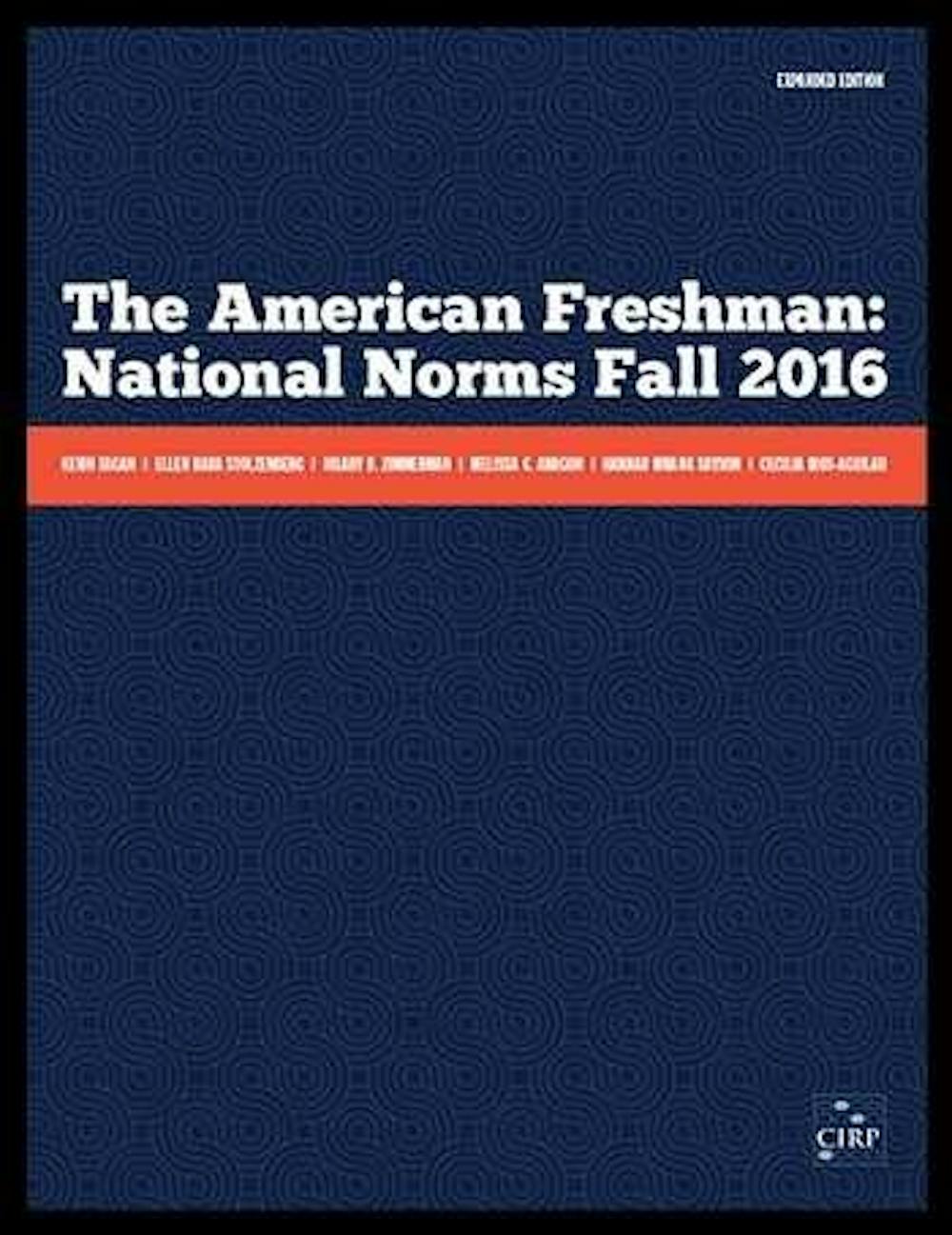A study conducted in 2016 surveyed 137,456 first-year college students and studied their mental health, behavior, political ideology, adaptation to college and concerns about rising costs of education.
Kevin Eagan, co-author of "The American Freshman: National Norms Fall 2016," said in an email the report highlighted key findings from a survey of the 2016 entering freshman classes at four-year colleges and universities.
The study was done during last year’s presidential election and revealed a larger proportion of students placing greater importance on life goals of influencing the political structure and social values.
“We felt as though the all-time largest political divide in the history of the survey was a pretty compelling story given the political drama that consumed much of the oxygen in 2016,” said Eagan, who serves as interim director of the Cooperative Institutional Research program at the University of California, Los Angeles.
According to the study, 41.1 percent of first-year women identified as liberal or far-left, while 28.9 percent of men identified as such. This is the largest gender gap in self-reported liberalism to date.
Women were also more likely to agree somewhat or strongly agree that addressing global climate change should be a federal priority, according to the study.
Eagan said superstorms could be shifting student views on climate change, and events such as the shooting at Pulse Nightclub could be shifting student views on gun control. College costs were an ongoing concern as well.
"Perhaps institutions will become reinvested in identifying solutions to constrain expenses so that tuition rises more slowly given that more students decide not to accept an offer of admission from their first-choice institution due to sticker shock," he said.
The report also looked at how incoming first-years rate their mental health status and emotional well-being.



